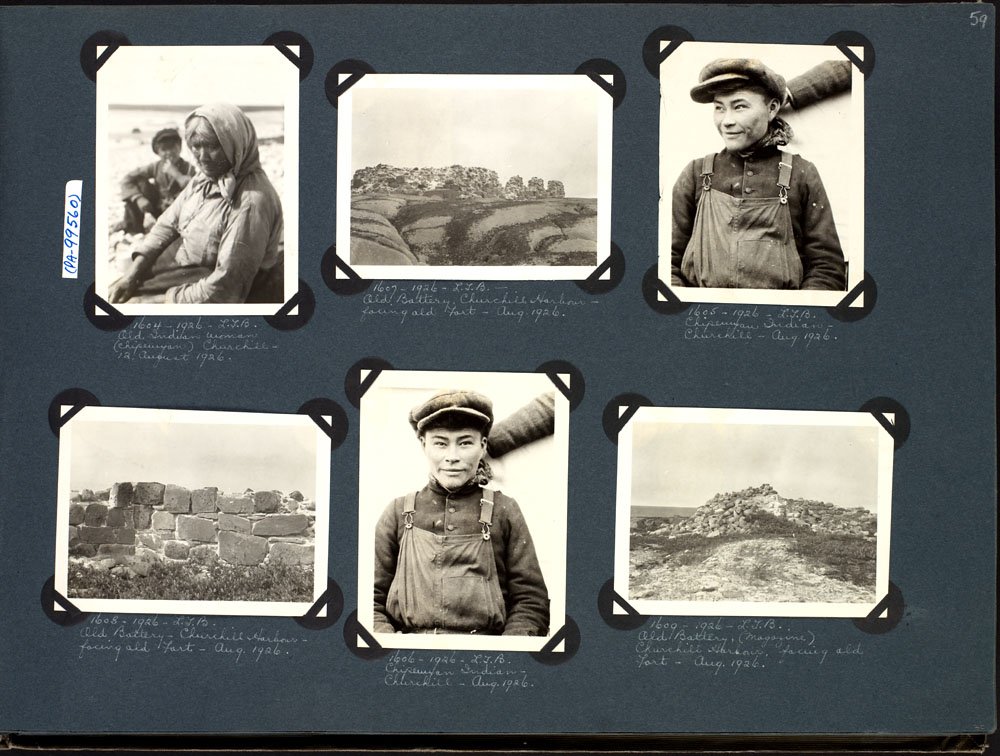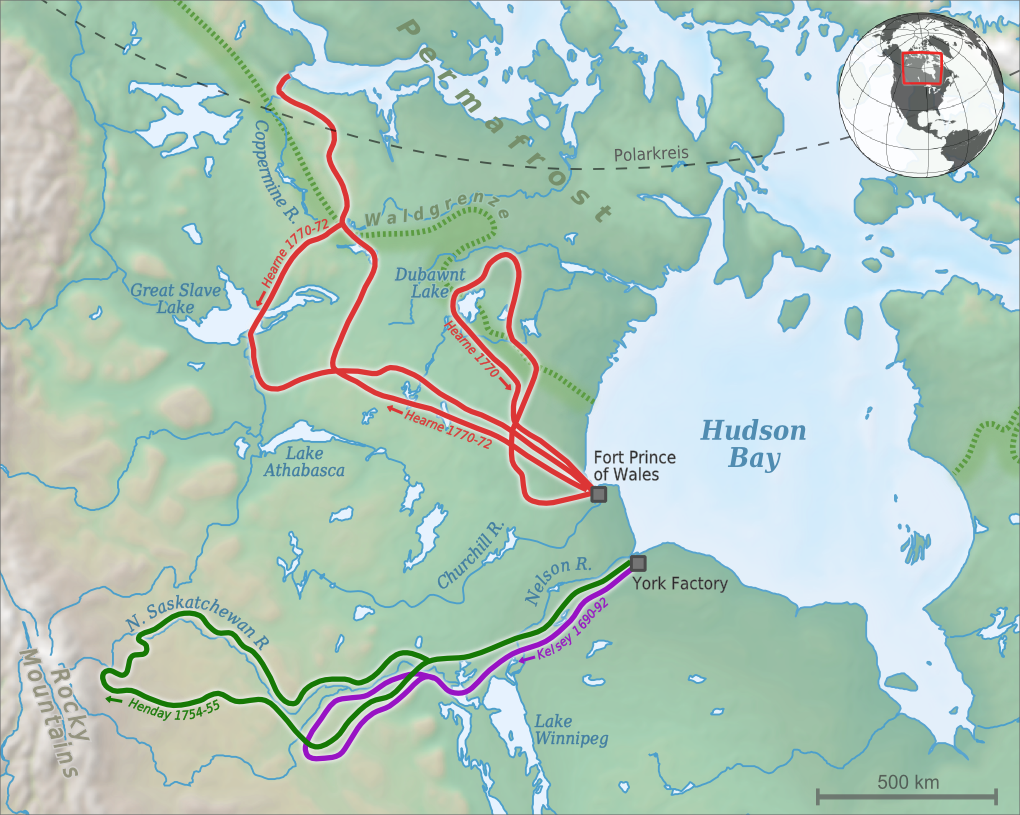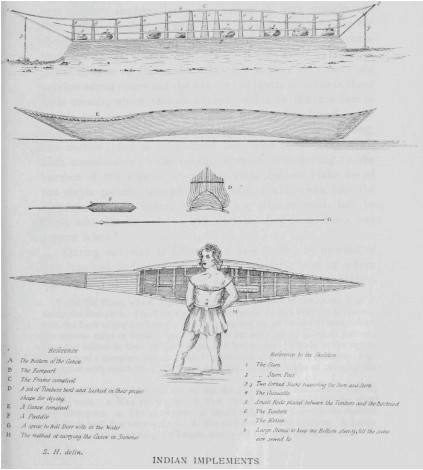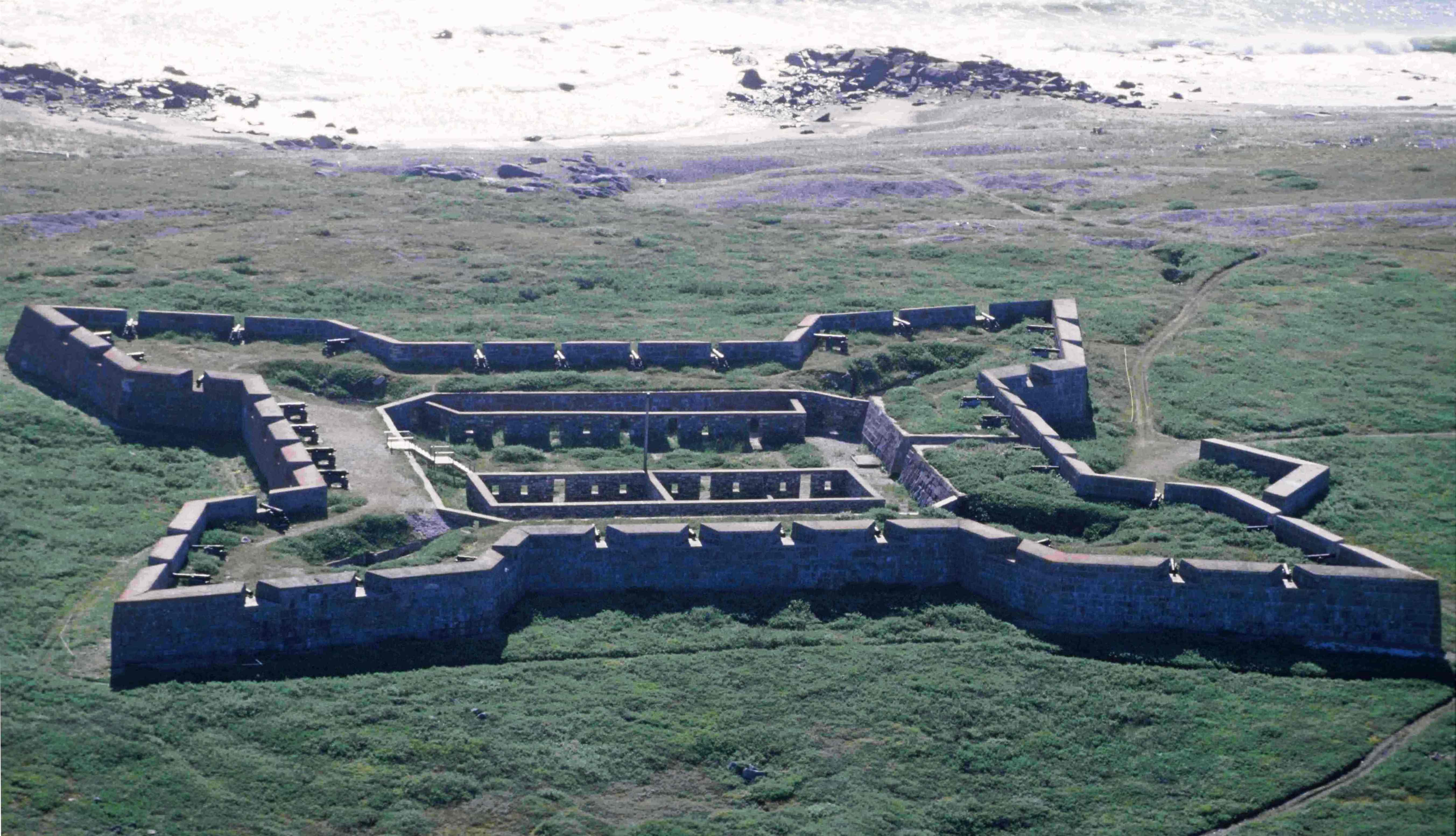|
James Knight (explorer)
James Knight (–) was an English director of the Hudson's Bay Company and an explorer who disappeared on an expedition to find the Northwest Passage. Career Knight was born in England and joined the Hudson's Bay Company (HBC) in 1676 as a carpenter. In 1682, he became chief factor of the trading post of Fort Albany in James Bay, where he became rich. In 1697, he bought stock in the HBC; in 1711, he gained a seat on the board of directors. The long wars of the Grand Alliance and the Spanish Succession between England and France had spread to North America and battered the Company financially and logistically. Four of the Company's five trading posts were lost to the French; Knight led an expedition in 1693 that successfully recaptured Fort Albany, the only one retained by the English. However, among the provisions of the Treaty of Utrecht in 1713 was the restoration of the captured posts. He gave a mission to William Stewart, the mission consisting in Developing commerce ... [...More Info...] [...Related Items...] OR: [Wikipedia] [Google] [Baidu] |
Kingdom Of England
The Kingdom of England (, ) was a sovereign state on the island of Great Britain from 12 July 927, when it emerged from various Anglo-Saxon kingdoms, until 1 May 1707, when it united with Scotland to form the Kingdom of Great Britain. On 12 July 927, the various Anglo-Saxon kings swore their allegiance to Æthelstan of Wessex (), unifying most of modern England under a single king. In 1016, the kingdom became part of the North Sea Empire of Cnut the Great, a personal union between England, Denmark and Norway. The Norman conquest of England in 1066 led to the transfer of the English capital city and chief royal residence from the Anglo-Saxon one at Winchester to Westminster, and the City of London quickly established itself as England's largest and principal commercial centre. Histories of the kingdom of England from the Norman conquest of 1066 conventionally distinguish periods named after successive ruling dynasties: Norman (1066–1154), Plantagenet (1154–1485), Tudor ... [...More Info...] [...Related Items...] OR: [Wikipedia] [Google] [Baidu] |
Chipewyan
The Chipewyan ( , also called ''Denésoliné'' or ''Dënesųłı̨né'' or ''Dënë Sųłınë́'', meaning "the original/real people") are a Dene Indigenous Canadian people of the Athabaskan language family, whose ancestors are identified with the Taltheilei Shale archaeological tradition. They are part of the Northern Athabascan group of peoples, and come from what is now Western Canada. Terminology The term ''Chipewyan'' (ᒌᐘᔮᐣ) is a Cree exonym meaning ''pointed hides'', referring to the design of their parkas. The French-speaking missionaries to the northwest of the Red River Colony referred to the Chipewyan people as Montagnais in their documents written in French. Montagnais simply means "mountain people" or "highlanders" in French and has been applied to many unrelated nations across North America over time. For example the Neenolino Innu of northern Quebec are also called "Montagnais". Demographics Chipewyan peoples live in the region spanning the w ... [...More Info...] [...Related Items...] OR: [Wikipedia] [Google] [Baidu] |
Allen Lane
Sir Allen Lane (born Allen Lane Williams; 21 September 1902 – 7 July 1970) was a British publisher who together with his brothers Richard and John Lane founded Penguin Books in 1935, bringing high-quality paperback fiction and non-fiction to the mass market. In 1967 he started a hardback imprint under his own name, Allen Lane. Early life and family Allen Lane Williams was born in Bristol, to Camilla (née Lane) and Samuel Williams, and studied at Bristol Grammar School. In 1919 he joined the publishing company Bodley Head as an apprentice to his uncle and founder of the company John Lane. In the process, he and the rest of his family changed their surname to Lane to retain the childless John Lane's company as a family firm. Lane married Letitia Lucy Orr, daughter of Sir Charles Orr, on 28 June 1941 and had three daughters: Clare, Christine, and Anna. He was knighted in 1952. Career as a publisher He rose quickly at Bodley Head, becoming managing editor in 1925 f ... [...More Info...] [...Related Items...] OR: [Wikipedia] [Google] [Baidu] |
Bloomsbury Publishing
Bloomsbury Publishing plc is a British worldwide publishing house of fiction and non-fiction. It is a constituent of the FTSE SmallCap Index. Bloomsbury's head office is located in Bloomsbury, an area of the London Borough of Camden. It has a US publishing office located in New York City, an India publishing office in New Delhi, an Australia sales office in Sydney CBD and other publishing offices in the UK including in Oxford. The company's growth over the past two decades is primarily attributable to the ''Harry Potter'' series by J. K. Rowling and, from 2008, to the development of its academic and professional publishing division. The Bloomsbury Academic & Professional division won the Bookseller Industry Award for Academic, Educational & Professional Publisher of the Year in both 2013 and 2014. Divisions Bloomsbury Publishing group has two separate publishing divisions—the Consumer division and the Non-Consumer division—supported by group functions, namely Sales and Mar ... [...More Info...] [...Related Items...] OR: [Wikipedia] [Google] [Baidu] |
John G
John is a common English name and surname: * John (given name) * John (surname) John may also refer to: New Testament Works * Gospel of John, a title often shortened to John * First Epistle of John, often shortened to 1 John * Second Epistle of John, often shortened to 2 John * Third Epistle of John, often shortened to 3 John People * John the Baptist (died c. AD 30), regarded as a prophet and the forerunner of Jesus Christ * John the Apostle (lived c. AD 30), one of the twelve apostles of Jesus * John the Evangelist, assigned author of the Fourth Gospel, once identified with the Apostle * John of Patmos, also known as John the Divine or John the Revelator, the author of the Book of Revelation, once identified with the Apostle * John the Presbyter, a figure either identified with or distinguished from the Apostle, the Evangelist and John of Patmos Other people with the given name Religious figures * John, father of Andrew the Apostle and Saint Peter * Pope Joh ... [...More Info...] [...Related Items...] OR: [Wikipedia] [Google] [Baidu] |
Owen Beattie
Owen Beattie (born 3 June 1949) is a Canadian professor of anthropology at the University of Alberta. Beattie gained international attention in 1984 for his investigation into the lost expedition of Sir John Franklin, which had left England in 1845 searching for the Northwest Passage. His specialized knowledge of human skeletal biology and forensic anthropology has led Beattie to assist the RCMP and other agencies in criminal investigations and accidents, including the Hinton rail disaster in central Alberta. Through the exhumation in 1984 and 1986 of the frozen bodies of Petty Officer John Torrington, Able-bodied Seaman John Hartnell and Royal Marine William Braine, on Beechey Island, Beattie was able to trace the source of the lead to the expedition's tinned food supply. Following the success of the Franklin research, Beattie turned his attention to the only other Northwest Passage exploration to have ended in mass disaster with no survivors, the 1719 expedition of Capt. Jam ... [...More Info...] [...Related Items...] OR: [Wikipedia] [Google] [Baidu] |
Inuk
Inuit (; iu, ᐃᓄᐃᑦ 'the people', singular: Inuk, , dual: Inuuk, ) are a group of culturally similar indigenous peoples inhabiting the Arctic and subarctic regions of Greenland, Labrador, Quebec, Nunavut, the Northwest Territories, and Alaska. Inuit languages are part of the Eskimo–Aleut languages, also known as Inuit-Yupik-Unangan, and also as Eskaleut. Inuit Sign Language is a critically endangered language isolate used in Nunavut. Inuit live throughout most of Northern Canada in the territory of Nunavut, Nunavik in the northern third of Quebec, Nunatsiavut and NunatuKavut in Labrador, and in various parts of the Northwest Territories, particularly around the Arctic Ocean, in the Inuvialuit Settlement Region. With the exception of NunatuKavut, these areas are known, primarily by Inuit Tapiriit Kanatami, as Inuit Nunangat. In Canada, sections 25 and 35 of the Constitution Act of 1982 classify Inuit as a distinctive group of Aboriginal Canadians who are not includ ... [...More Info...] [...Related Items...] OR: [Wikipedia] [Google] [Baidu] |
Fathom
A fathom is a unit of length in the imperial and the U.S. customary systems equal to , used especially for measuring the depth of water. The fathom is neither an International Standard (SI) unit, nor an internationally-accepted non-SI unit. Historically, however, it is the most frequently employed maritime measure of depth in the English-speaking world. There are two yards (6 feet) in an imperial fathom. Originally the span of a man's outstretched arms, the size of a fathom has varied slightly depending on whether it was defined as a thousandth of an (Admiralty) nautical mile or as a multiple of the imperial yard. Formerly, the term was used for any of several units of length varying around . Name The name (pronounced ) derives from the Old English word ''fæðm'', cognate to the Danish (via the Vikings) word "favn" meaning embracing arms or a pair of outstretched arms. Cognate maybe also via the Old High German word "fadum" of the same meaning.''Oxford English Dictionary' ... [...More Info...] [...Related Items...] OR: [Wikipedia] [Google] [Baidu] |
Eskimo
Eskimo () is an exonym used to refer to two closely related Indigenous peoples: the Inuit (including the Alaska Native Iñupiat, the Greenlandic Inuit, and the Canadian Inuit) and the Yupik peoples, Yupik (or Siberian Yupik, Yuit) of eastern Siberia and Alaska. A related third group, the Aleut, which inhabit the Aleutian Islands, are generally excluded from the definition of Eskimo. The three groups share a relatively recent common ancestor, and speak related languages belonging to the Eskaleut languages, Eskaleut language family. These circumpolar peoples have traditionally inhabited the Arctic and subarctic regions from eastern Siberia (Russia) to Alaska (United States), Northern Canada, Nunavik, Nunatsiavut, and Greenland. Many Inuit, Yupik, Aleut, and other individuals consider the term ''Eskimo'', which is of a disputed etymology, to be unacceptable and even pejorative. Eskimo continues to be used within a historical, linguistic, archaeological, and cultural context. The g ... [...More Info...] [...Related Items...] OR: [Wikipedia] [Google] [Baidu] |
Henry Kelsey
Henry Kelsey ( – 1 November 1724) was an English fur trader, explorer, and sailor who played an important role in establishing the Hudson's Bay Company in Canada. He is the first recorded European to have visited the present-day provinces of Saskatchewan and, possibly, Alberta, as well as the first to have explored the Great Plains from the north. In his travels to the plains he encountered several Plains First Nations, as well as vast herds of the American bison, their primary source of food. Early life and career Kelsey was born and married in East Greenwich, south-east of central London. Kelsey was apprenticed in London at age 17 to the Hudson's Bay Company (HBC) in 1684 and departed England for Canada on 6 May 1684. He was posted at a fort on Hudson's Bay near present-day York Factory, Manitoba, near the mouth of the Nelson River on Hudson Bay. Kelsey started exploring in the winter of 1688–1689 when he and a First Nations boy carried mail overland 200 miles ... [...More Info...] [...Related Items...] OR: [Wikipedia] [Google] [Baidu] |
Samuel Hearne
Samuel Hearne (February 1745 – November 1792) was an English explorer, fur-trader, author, and naturalist. He was the first European to make an overland excursion across northern Canada to the Arctic Ocean, actually Coronation Gulf, via the Coppermine River. In 1774, Hearne built Cumberland House for the Hudson's Bay Company, its second interior trading post after Henley House and the first permanent settlement in present Saskatchewan. Biography Samuel Hearne was born in February 1745 in London. Hearne's father was Secretary of the Waterworks of London Bridge, who died in 1748. His mother's name was Diana, and his sister's name was Sarah, three years younger than Samuel. Samuel Hearne joined the British Royal Navy in 1756 at the age of 11 as midshipman under the fighting captain Samuel Hood. He remained with Hood during the Seven Years' War, seeing considerable action during the conflict, including the bombardment of Le Havre. At the end of the Seven Years' War, having serve ... [...More Info...] [...Related Items...] OR: [Wikipedia] [Google] [Baidu] |
Churchill, Manitoba
Churchill is a town in northern Manitoba, Canada, on the west shore of Hudson Bay, roughly from the Manitoba–Nunavut border. It is most famous for the many polar bears that move toward the shore from inland in the autumn, leading to the nickname "Polar Bear Capital of the World" that has benefited its burgeoning tourism industry. Geography Churchill is located on Hudson Bay, at the mouth of the Churchill River on the 58th parallel north, far above most Canadian populated areas. Churchill is far from any other towns or cities, with Thompson, approximately to the south, being the closest larger settlement. Manitoba's provincial capital, Winnipeg, is approximately south of Churchill. While not part of the city, Eskimo Point and Eskimo Island are located across river with the former site of the Prince of Wales Fort. History A variety of nomadic Arctic peoples lived and hunted in this region. The Thule people arrived around the year 1000 from the west, the ancestors of the presen ... [...More Info...] [...Related Items...] OR: [Wikipedia] [Google] [Baidu] |







